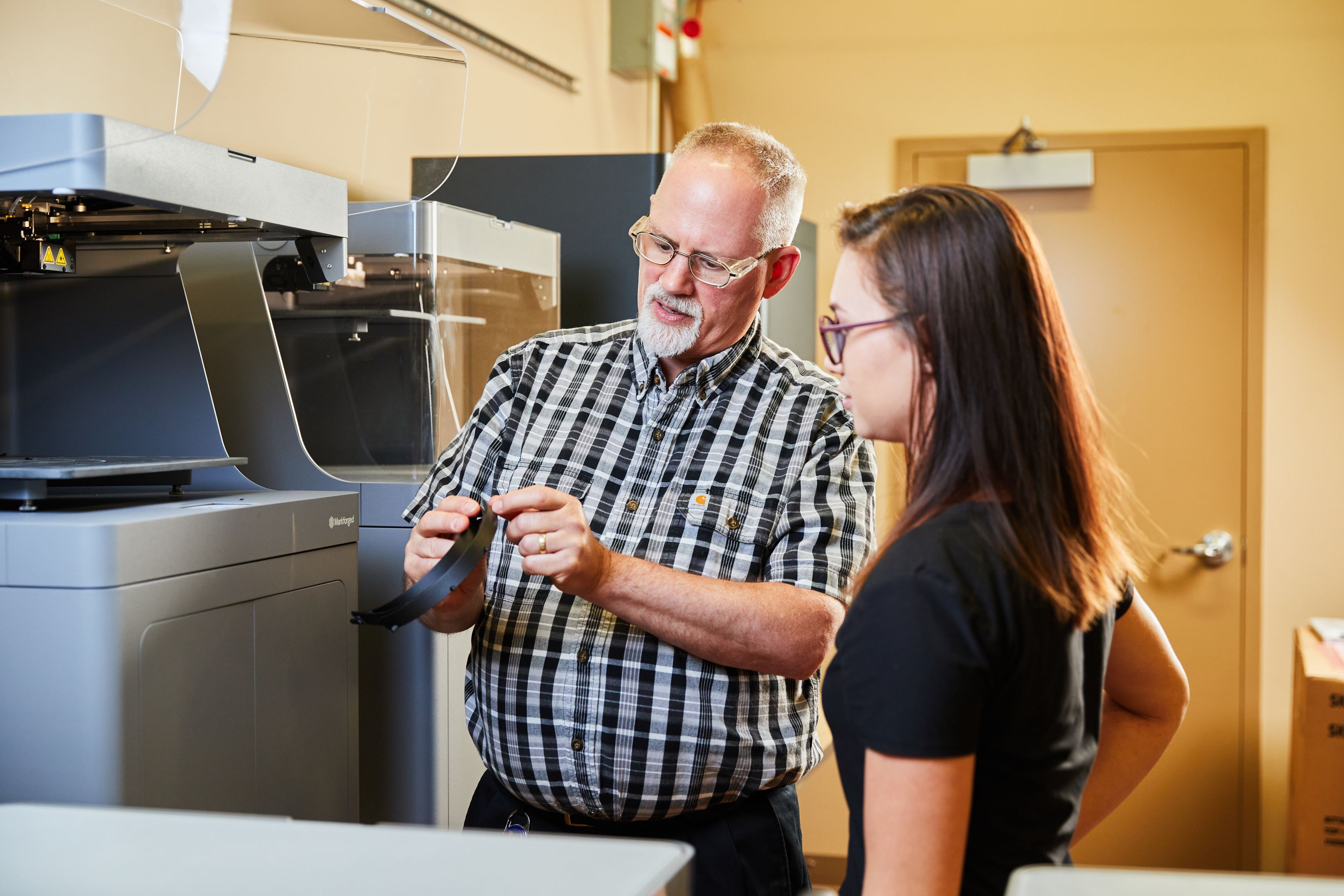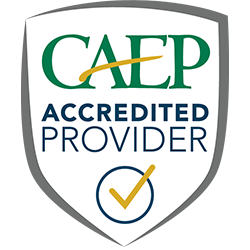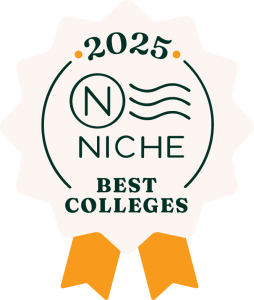
Bachelor of Education in Engineering Education 6-12
Educate Tomorrow’s Innovators with a Bachelor of Education in Engineering Education
Engineering improves many different aspects of life. We need educated and trained young people to enter the workforce and become the inventors and creators of tomorrow’s technology. Prepare to help educate future engineering leaders by partnering with Liberty University. Our Bachelor of Education (B.Ed.) in Engineering Education 6-12 is designed to help equip you to become an educator for the next generation of engineers.
Our engineering education degree can help you learn how to teach a variety of topics related to this vital field. Upon graduation, you could pursue teaching roles for middle or high school engineering classes. Start your degree now so you can make an impact on tomorrow’s innovators in the engineering field. We want to help you get there!
Upon successful completion of Liberty University’s Virginia state-approved Bachelor of Education program, you may apply for your teaching license in another state through reciprocity, which may or may not result in additional requirements based on your state’s Department of Education regulations.
Credit Hours
View CoursesNext start date: Aug 18, 2025

CAEP Accredited
Highlights
Highlights of Our Bachelor of Education in Engineering Degree
Top-Notch Accreditation
Liberty University’s School of Education meets rigorous national standards for educator preparation set by the Council for the Accreditation of Educator Preparation (CAEP).
Opportunity for Funding
Pursuing one of our Bachelor of Education degrees may make you eligible for the Federal TEACH Grant.
Practical Learning
Gain 90 practicum hours and at least 1 full semester of student teaching prior to graduation! You could complete your student teaching in a variety of settings throughout Virginia or in the Washington, D.C., public school system through our Washington Fellowship.
Experienced Faculty and Networking Opportunities
The professors who teach our licensure courses have K-12 experience and a current teaching license. Additionally, you can get involved with professional and student organizations in order to expand your network and receive support as you pursue your goals.
Career Potential
What Can You Do with a B.Ed. in Engineering Education 6-12?
Liberty University’s Bachelor of Education in Engineering Education can help prepare you to pursue the following occupations:
- College/university academic advisor
- Engineering teacher for Christian school
- High school engineering teacher
- Middle school engineering teacher
- Private school teacher


#4 Best College Campus in America
At Liberty, you’ll find an affordable, high-quality education designed to help equip students like you for the real world. Our commitment to excellence has earned us recognition as the #4 Best College Campus in America by Niche.com.
Earning your degree from a nonprofit university with state-of-the-art resources like ours can help set you apart from your peers.
Courses
What Will You Study in Our 6-12 B.Ed. in Engineering Degree?
In this program, you’ll take education courses that can help you learn fundamental teaching skills, such as evaluating students, creating a curriculum, and teaching to the different behavioral and personality differences you might encounter in the classroom.
We want you to be prepared with the foundational knowledge needed for success in the classroom. As you complete your B.Ed., you can become familiar with a wide variety of engineering-related subjects. Some of the subjects covered include thermodynamics, probability and statistical analysis, and fluid dynamics. Your studies will also include a number of engineering-related math classes, such as differential equations, calculus, and analytical geometry.
Your student teaching and practicum hours will allow you to put the knowledge you’ve gained into practice. You’ll work directly in a classroom and gain experience, with the goal of helping equip you to one day lead an engineering class of your own.
Additional Degree Information
Featured B.Ed. in Engineering Education Courses
ENGI 220 – Engineering Economy
ENGM 310 – Materials Engineering
ENGR 125 – Visualization for Engineers
ENGR 240 – Dynamics
Degree Information
- This program falls under the School of Education
- View the Degree Completion Plan
- Check out our course catalog
- Transfer in up to 75% of the degree total
BENEFITS
Why Choose Liberty’s B.Ed. in Engineering Degree?
Gain Confidence Through Real Classroom Experience
At Liberty University, we understand that becoming an effective teacher requires more than just coursework, it takes hands-on practice. That’s why our B.Ed. in Engineering program includes multiple practicum and student teaching opportunities to help you build confidence and develop classroom management skills. You’ll graduate with meaningful, real-world experience that prepares you to lead your own classroom.
Benefit from Personalized Support and Placement Options
Within the School of Education, our dedicated team works to make your transition from student to teacher as smooth as possible. You’ll be guided through your practicum by experienced staff and placed in a student teaching position that matches your goals. From schools across Virginia to a semester-long fellowship in Washington, D.C., Liberty offers placement opportunities that allow you to explore a range of educational settings.
Prepare to Teach with Purpose and Integrity
Teaching is more than a profession, it’s a calling. At Liberty, you can be equipped not only with a strong academic foundation but also with the values and ethics needed to lead with compassion and integrity. As one of the largest providers of licensed teachers in Virginia, we’re committed to producing educators who are both technically skilled and spiritually grounded.
Make a Lasting Impact in Students’ Lives
Our nation needs educators who are passionate about shaping the next generation, especially in the fields of STEM. With a B.Ed. in Engineering from Liberty, you’ll be prepared to step into the classroom and inspire students from all backgrounds. Partner with us to prepare for a career where you can influence lives, build futures, and bring excellence to every lesson you teach.
Admissions
How Do You Become a B.Ed. in Engineering Education Student?
Every application is reviewed by the admission committee on a case-by-case basis, meaning there are no set minimums for acceptance. However, all applicants must submit the following documents* for admission:
- Admission application
- Official high school transcripts
- Official college transcripts (if applicable)
- Admission essay
Results from the CLT, SAT, or ACT are not required for admission, but may be used in consideration for merit-based aid.
*Note that additional documentation may be requested by the admission committee after your application has been received.

Have Questions?
We’ll make sure you have the information you need to take your next step.